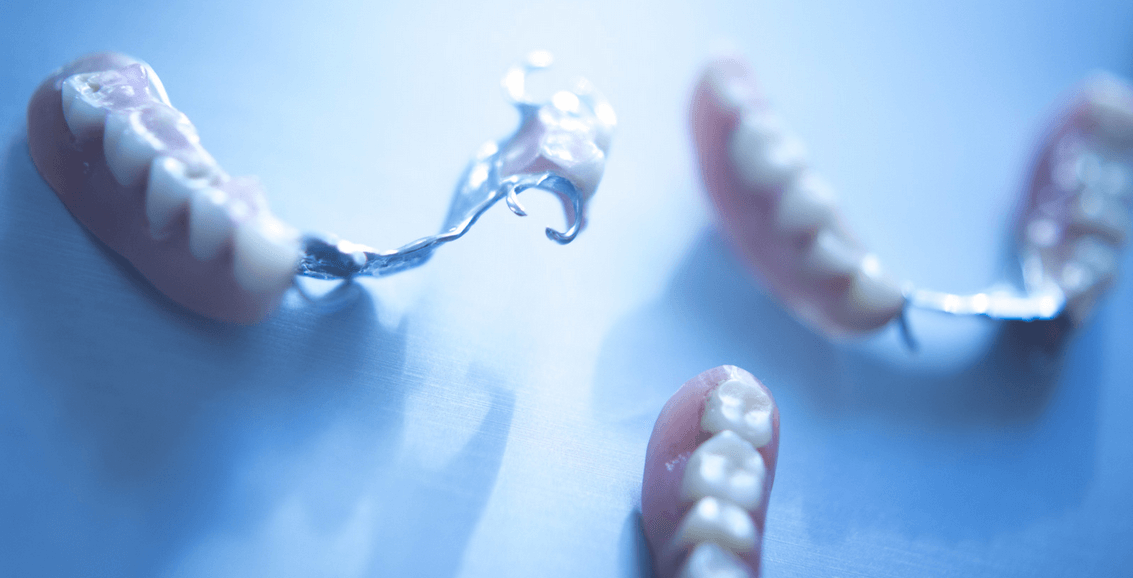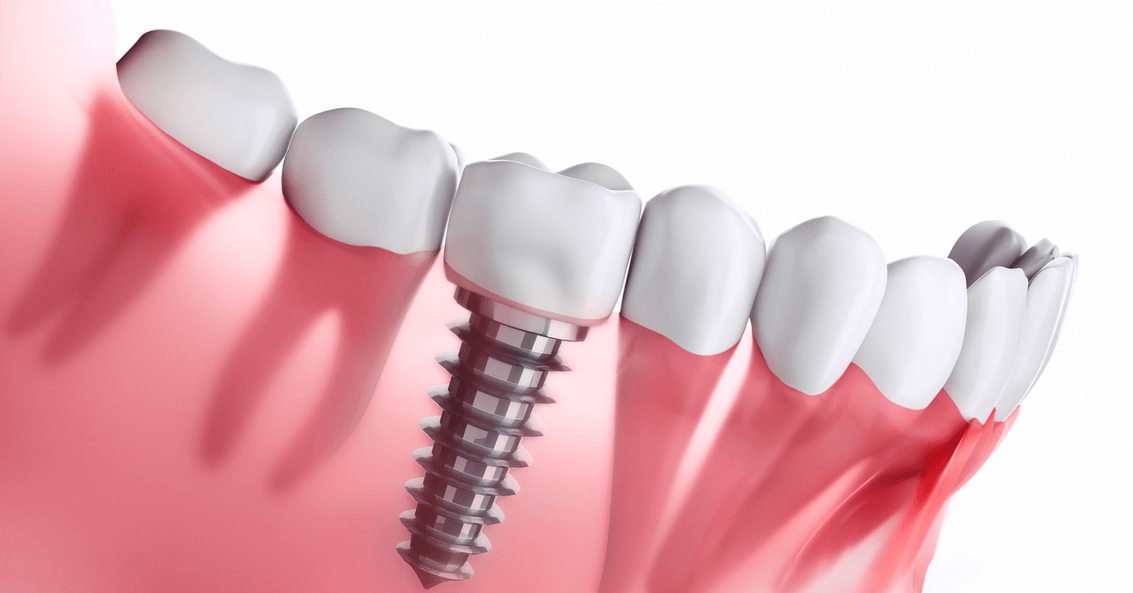Partial Dentures vs. Dental Implants: Which Should You Choose?
Jan 24, 2024 by Mills Haven Dental

When it comes to restorative dentistry, patients often find themselves at a crossroads, having to choose between partial dentures and dental implants. This choice can be challenging given both options' unique benefits and drawbacks. To make an informed decision about the best solution for your oral health needs, it's essential to understand the differences between these two popular dental procedures. This blog aims to provide a detailed comparison, shedding light on various aspects such as procedure, durability, comfort, and maintenance. By the end of this comprehensive guide, you'll be better informed to discuss the most suitable course of action with your dentist, ensuring a brighter, healthier smile for years to come.
Overview of Partial Dentures

Partial dentures are a viable solution for patients missing a few teeth but not all. They function by filling in the gaps left by lost teeth, improving the individual's ability to eat and speak while enhancing aesthetics by restoring the completeness of the smile. Partial dentures typically consist of replacement teeth attached to a pink or gum-coloured plastic base, often connected by a metal framework that holds the denture in the mouth.
The fitting process involves the dentist making impressions of your mouth and designing a model denture. Adjustments will be made to ensure a perfect fit and utmost comfort. Once the final design is agreed upon, the denture will be cast and fitted.
Partial dentures are commonly recommended when the surrounding teeth aren't strong enough to support a dental bridge or when more than a few teeth are missing. They can also be a good choice for those who want an alternative to dental implants due to cost or medical considerations.
Overview of Dental Implants

Dental implants are a popular and effective long-term solution for individuals who suffer from missing teeth, chronic dental problems, or advanced tooth decay. These artificial tooth roots, typically made from titanium, provide a strong foundation for fixed or removable replacement teeth designed to match your natural teeth.
Unlike partial dentures, dental implants are surgically implanted into the jawbone, usually done in stages. The first step involves inserting the implant into the jaw, followed by a healing period that can take several months as the bone grows around the implant, securing it in place. Once healed, an abutment is attached to the implant post and serves as the base for the new tooth. Finally, a crown is attached to the abutment, providing the appearance and function of a natural tooth.
Dental implants are often recommended when the patient has one or more missing teeth but has adequate bone to secure the implants or can have a bone graft. They are also the preferred choice in situations where the patient desires a more permanent solution that doesn't require removal for cleaning and doesn't impede speech or eating. Dental implants can also be a good choice for patients looking for a tooth replacement option that maintains facial structure and prevents bone loss, which can occur with missing teeth.
Comparative Analysis of Procedure and Timeframe
When comparing the procedures for partial dentures and dental implants, it's important to note the difference in timeframe and the number of dental visits required.
Partial dentures typically require fewer visits, with most processes completed in about two to three appointments. The procedure involves making an impression of your mouth, fitting and adjusting the model denture, and casting and fitting the denture. The process can take a few weeks to complete, depending on the need for adjustments and the patient's specific requirements.
On the other hand, dental implants often involve a longer process, typically spanning several months. After the initial consultation, the implant is surgically inserted into the jawbone. It then takes a few months for the bone to grow around the implant in a process called osseointegration. Once healed, an abutment is attached, followed by the attachment of the crown. This process requires multiple visits and can take anywhere from 3 to 6 months, or even longer in some cases, depending on the healing process and patient-specific factors.
Aesthetics and Functionality
Regarding aesthetics and functionality, partial dentures and dental implants aim to restore the look and function of natural teeth.
Partial dentures fill in the gaps left by missing teeth, significantly enhancing one's smile and facial appearance. However, they may offer a different natural look and feel than dental implants since the artificial teeth and gum-coloured base can be noticeable.
On the other hand, dental implants are designed to mimic natural teeth in appearance and function. With the crown designed to match the colour and shape of the existing teeth and the secure attachment to the jawbone, dental implants can offer superior aesthetic results and functionality. They also help maintain facial structure and prevent bone loss, which can be a significant advantage over partial dentures.
Comfort and Adaptation
As for comfort and adaptation, it can vary widely from patient to patient.
Partial dentures may initially feel uncomfortable or odd, but most people adjust to these feelings after a few weeks. However, the dentures may require adjustments over time due to gums and bone structure changes. While the ease of removal for cleaning can be seen as a benefit, some patients may find the process inconvenient.
Dental implants, in contrast, are often reported to be more comfortable as they become part of the bone structure and function like natural teeth. There's no need for removal or special cleaning procedures, which many patients find convenient. However, the surgical aspect of dental implant procedures may only be suitable for some and could require a longer adjustment period post-surgery.
Longevity and Durability
One of the critical factors to consider when comparing dental implants and partial dentures is their lifespan and durability.
While a more immediate and cost-effective solution, partial dentures are generally less durable. They are frequently made from acrylic or metal, materials that, while robust, are not invincible. The average lifespan of partial dentures is between five and seven years, after which they may need to be replaced. This is due to the wear and tear they experience and potential changes in the patient's mouth structure. Regular care, including nightly removal and cleaning, can help extend their durability.
On the other hand, dental implants are widely recognized for their longevity and durability. Made from biocompatible titanium, the implant fuses with the jawbone, creating a strong and long-lasting foundation for the replacement tooth. If maintained with good oral hygiene, dental implants can last a lifetime. Depending on wear, the crown attached to the implant may require replacement every 10 to 15 years.
While partial dentures offer a quicker and less invasive solution, dental implants are the most durable. Despite a higher initial cost and longer treatment time, they can be more cost-effective in the long term due to their longevity.
Cost Analysis
Cost is often a significant deciding factor between partial dentures and dental implants.
Partial Dentures
Partial dentures are generally more cost-effective initially, depending on the materials used and the number of teeth needed. However, they may need to be replaced every five to seven years due to wear and tear and potential changes in your mouth's structure. In addition, maintenance costs for cleaning solutions and occasional adjustments or repairs should also be factored into the long-term financial considerations.
Dental Implants
Dental implants, on the other hand, have a higher upfront cost. The price for a single dental implant can vary depending on various factors, such as the complexity of the procedure, the materials used, and where the treatment is performed. However, this higher initial cost can be offset by the longevity and durability of dental implants. With good oral hygiene, the implanted post can last a lifetime, while the crown typically lasts 10-15 years before needing replacement. Therefore, ongoing costs are usually limited to regular dental check-ups and potential crown replacement.
Overall, while partial dentures may be the cheaper option initially, dental implants can often prove more cost-effective in the long term due to their durability and limited ongoing maintenance costs. However, every patient is unique, and financial considerations should be balanced with personal comfort, aesthetic preferences, and overall health goals.
Impact on Oral Health
Partial Dentures
Partial dentures, while providing a functional solution, may have some impacts on oral health. They do not directly stimulate the jawbone beneath the missing tooth, which can lead to bone loss over time. Furthermore, partial dentures can cause sore spots or oral lesions due to constant rubbing against the gums and remaining teeth if not correctly fitted. Denture wearers must maintain excellent oral hygiene practices to prevent plaque buildup and gum disease risk.
Dental Implants
Dental implants have a positive impact on oral health. They are anchored directly into the jawbone, providing the same kind of stimulation that natural tooth roots would. This helps to prevent bone loss that typically follows tooth loss. Additionally, dental implants don't have to be anchored to other teeth like bridges, preserving the overall health of your other teeth. They also reduce the risk of gum disease, as there are no spaces for food particles to get trapped. Like natural teeth, they require regular brushing and flossing. It's crucial to clean around the abutments to prevent plaque buildup and gum disease.
Partial dentures and dental implants require good oral hygiene practices. However, dental implants offer more advantages in preserving gum and bone improving oral health.
Suitability for Different Patients
When considering restorative dental solutions, factors like age, bone density, and overall health play significant roles in determining the most suitable option.
Partial Dentures
Partial dentures are more flexible and suitable for a broad range of patients, including those who may not be ideal candidates for surgery due to health conditions or age-related concerns. Dentures can also be a better choice for those with significant bone loss in the jaw, as they do not require the same bone support as dental implants.
Dental Implants
On the other hand, dental implants are more suitable for patients with good general health who can undergo a surgical procedure. They are also more advantageous for those with sufficient bone density in the jaw, as the implant needs a solid foundation for successful integration and long-term stability. Additionally, dental implants can be an excellent choice for younger patients looking for a durable, long-lasting solution that will not require frequent replacement.
However, it's important to remember that each patient is unique, and the best choice should be determined in consultation with a dental professional. Factors like individual health status, oral hygiene, lifestyle, and long-term oral health goals must be considered to make the most appropriate decision.
Maintenance and Care
Maintaining your dental restorations, be it partial dentures or dental implants, is vital in ensuring their longevity and your oral health.
Partial Dentures
Partial dentures require daily care to remain clean and keep the mouth healthy. They should be removed and cleaned every night to eliminate food particles and prevent plaque build-up. A specific denture cleaning solution or mild dish soap can be used for cleaning, but avoid using abrasive cleaners or toothpaste. When handling them, do so over a soft towel or filled sink to prevent damage from accidental drops. It's also important to rinse your mouth and the dentures after meals. In addition to this, regular dental check-ups are essential for adjustments and professional cleaning.
Dental Implants
Dental implants require maintenance similar to natural teeth. Regular brushing at least twice daily, flossing once daily, and using an antimicrobial mouthwash can help ensure the implants stay clean and disease-free. Particular attention should be given to cleaning around the abutments to avoid plaque build-up. Regular dental check-ups are essential to monitor the health of dental implants and conduct professional cleaning. Dental implants can provide a healthy, functional, and aesthetic solution for missing teeth for many years.
Summary of Pros and Cons
Partial Dentures
Pros
- More affordable upfront cost.
- There is no need for surgery.
- Suitable for a broad range of patients, including those with health conditions or significant bone loss.
- It can be adjusted over time.
Cons
- This can lead to bone loss over time due to lack of stimulation to the jawbone.
- It can cause discomfort and oral lesions if not correctly fitted.
- Require daily removal and thorough cleaning.
- It may need to be replaced more often than implants.
Dental Implants
Pros
- Long-term cost-effectiveness.
- It can last a lifetime with proper care.
- Help prevent bone loss by stimulating the jawbone like natural teeth.
- Improve oral health by not relying on other teeth for support.
- It can be brushed and flossed like natural teeth.
Cons
- Higher initial cost.
- Requires surgery and sufficient bone density for placement.
- It is not suitable for all patients due to surgical risks.
- Require careful cleaning around the abutment to prevent plaque build-up.
Conclusion
Partial dentures and dental implants both offer viable solutions for tooth restoration. Dentures are cost-effective and accommodate many patients with significant bone loss or health concerns. However, they require meticulous daily cleaning and may cause discomfort if not correctly fitted. On the other hand, dental implants can be a long-term, cost-effective solution, helping to prevent bone loss and improving oral health by not relying on other teeth for support. Yet, their placement requires surgery and sufficient bone density; thus, they might only be suitable for some. Remember that each patient's situation is unique, and the best course of action should be determined in consultation with a dental professional. Understanding the pros and cons of each option allows for informed decision-making. Still, professional advice is crucial in ensuring the chosen solution aligns with the individual's health status, lifestyle, and long-term oral health goals.
At Mills Haven Dental in Sherwood Park, Alberta, we have a team of experienced professionals ready to provide top-notch dental care. We welcome you to book your dental appointment with us today. Visit our contact page now to start your journey towards optimal oral health.